Pat McKee Retires after 56 Years at CSU
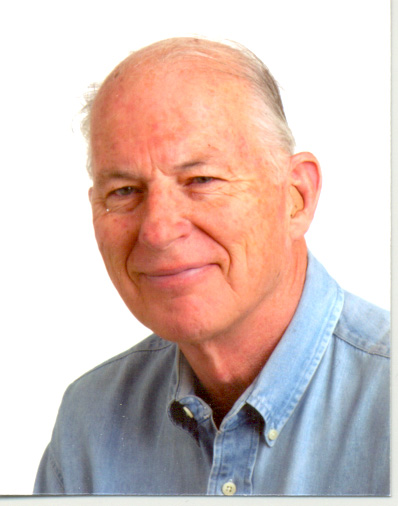
This summer we celebrate the distinguished career of our longest serving faculty member, Patrick McKee, who will retire this month. Pat first joined the philosophy department at CSU fifty-six years ago, in August 1964. Pat’s philosophical scholarship spans the fields of epistemology, gerontology, and aesthetics with a number of books and dozens of articles in these areas. Pat also served as chair of the department throughout most of the 1980s.
Through the years of his career in teaching and research, Pat has maintained a lively interest in the art of oil painting, showing many of his works in professional art exhibitions throughout Northern Colorado. For the past five years he has been “juried in” to the prestigious Governor’s Show at the Loveland Museum of Art.
The direction of Pat’s interest in creating original paintings took a philosophical turn in 1998 when he encountered Immanuel Kant’s theory that art works can go beyond expression of beauty to expression of ethical and metaphysical transcendence, or what Kant called “the sublime.” You can see Pat’s paintings on his personal webpage, and read about his reflections on art and life in this feature. His recent philosophical reflections on art and transcendence can be found in his essays “Transcendence in James Reynolds’ Old Age Landscapes,” Journal of Aging, Humanities, and the Arts (2010), and “The Sublime and Depictions of Violence in Some Contemporary Artworks,” International Journal of Education and the Arts (2009).
Student & Alumni News
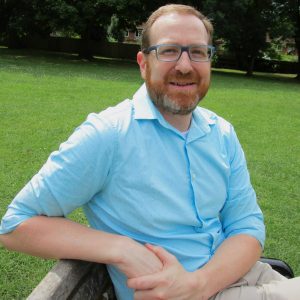
Last summer, second year graduate student Matthew Webber gave a paper entitled “A New Binary: Creator and Created” at the Oxford Centre for Animal Ethics Annual Summer School where he is an Associate Fellow. This paper, addressing the need for human education with regard to nonhuman animals in Christian higher education has also been accepted as a chapter in a forthcoming book provisionally titled A Handbook of Humane Education. Matthew also shared a paper entitled “Caveat Emptor: The Ethics of Responsible Information Consumption” at CSU’s Bodaken Philosophy Symposium’s Living Together Online workshop.
Over fall break, Matthew joined three graduate students in the Animal Science department to participate in the American Veterinary Medical Association (AVMA) Animal Welfare Assessment competition where their team finished first in their division in the Live Scenario portion and second in the Virtual Scenario portion. Matthew finished in the top five as an individual in the Virtual Scenario portion of the international competition as well. Finally, Matthew’s review of the book Our Symphony with Animals: On Health, Empathy, and Our Shared Destinies by Akhtar A. Aysha will appear in the upcoming Fall 2020 volume of the Journal of Animal Ethics.
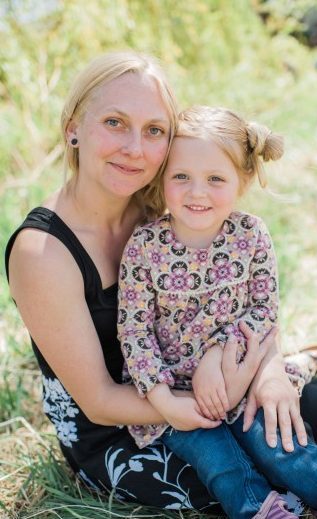
Fifteen years after completing her studies at CSU, Alyson Huff (MA 2005) returns to teach Logic once again. Alyson’s full-time gig at Front Range Community College takes most of her time as Philosophy lead faculty and Writing Across the Curriculum (WAC) Program Director. To stay current with pedagogical research, Alyson completed two online trainings this summer, including CSU’s “Designing Your Online Course”, and she facilitated an online professional development workshop, “Online Essentials.” Alyson was also nominated for a Master Teacher award.
This year, as a Founding Member of the Association for Writing Across the Curriculum (AWAC), Alyson began her three-year term serving on the Mentoring Committee’s Board of Consultants. She presented at the CCCC WAC Standing Group/AWAC Mentoring Committee discussion session “WAC at two-year colleges” with her co-presenter, Mary McMullen Light, and she presented “Holistic Assessments & Point-Less Grading: Making D2L Work for You” at the eLearning Consortium of Colorado conference with her co-presenter, J. Mark Hussey. Additionally, Alyson was slated to present two sessions, “WAC and Learner-Centered Teaching” and “Holistic Assessments: A Better Way to Assess Learning” at the International Writing Across the Curriculum Conference, but this has been postponed until fall of 2021 due to recent global events.
Jesse Gray has just completed his Master’s Degree with a focus on bioethics. Jesse argues that human enhancement is an additional tool we can use to augment traditional methods of developing more creative, more civically engaged, and more moral citizens. Jesse claims that this doesn’t mean that technologies, such as drugs or direct interventions, should be used first, or even primarily, just that they should be explored when safe and effective.
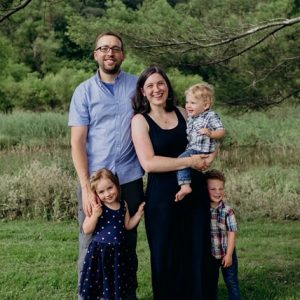
Jesse, with co-author Professor Moti Gorin, published “Some Optimism About Enhancement” in The American Journal of Bioethics. He also has two forthcoming articles: “Radical Enhancement as a Moral Status De-Enhancer” in Monash Bioethics Review and “Revising, Correcting & Transferring Genes: Germline Editing vs. Natural Reproduction” in The American Journal of Bioethics. Jesse is busy this summer as the co-instructor for Business 220: Ethics in Contemporary Organizations.
Joshua Gambrel (MA 2008) lives in Boone, North Carolina with his wife Laura and their children Roan (4), Juniper (4) and Rainer (2). They spend a lot of time outdoors hiking, biking, kayaking, fishing and playing. The twins can already build an emergency shelter with a fire! Josh was a professional brewer for five years after graduate school, then retrained as a nurse. Currently he is an ER nurse at the Wautaga Medical Center. Laura recently received tenure in the Psychology Department at Appalachian State University.
Faculty News

Laura Arcila Villa had two papers accepted at professional conferences, but both events were cancelled due to COVID-19 restrictions: “Anne Conway’s Christology” was accepted for the meeting of the Quaker Studies Research Association and the Center for Research in Quaker Studies at the University of Birmingham, UK in June of this year; “Anne Conway’s Metaphysics and Theology” was accepted for the joint regional meeting of the American Academy of Religion and Society of Biblical Literature in Colorado Springs, CO in March. Laura successfully completed the course: “Best Practices: Design and Develop your Online Course” by TRN/TILT in June. She is now using what she learned to re-design two sections of PHIL 103 for hybrid delivery this fall.
Arcila-Villa on Remote Teaching: “Discussion boards were a big success and brought a strong sense of community to my classes. The more reserved voices that had not been heard in the classroom came to life in the new environment, sometimes partaking in discussion from homes in faraway places and distant time zones. I like to think that the online environment afforded us a new sense of belonging and place in the learning community. I think the adaptations we had to make are on the whole new opportunities to continue learning and to being more resilient in challenging times.”
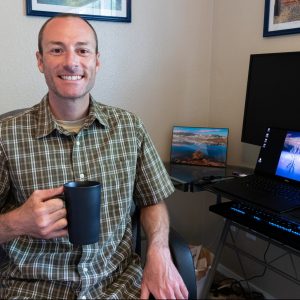
Shawn Brady on Remote Teaching: “My experience working from home has been mixed. There certainly have been positives: I feel fortunate to be able to work from home in the first place, I’ve been able to set a more flexible schedule for myself, spend more time with my wife and dog, and recognize just how much I value face-to-face teaching and learning. However, there have been some challenges as well: Feeling a lack of connection to and engagement with my students, generating motivation to ‘go to class’ even though there is no physical class to go to, and simply keeping up with the grading of weekly discussion board assignments. While I have found some ways of coping with these challenges and I’ve appreciated this experience of teaching online, ultimately I look forward to being able to return to face-to-face classes.”
Ashby Butnor designed and taught a new course on Zen Buddhist philosophy this past fall, and continued to teach her first-year service learning seminar through her partnership with Key Communities and the Family Housing Network of Fort Collins. She also published a book review of Buddhist Feminisms and Femininities (ed. Tsomo, 2019) in Hypatia. In January, Ashby participated in a three-day Institute on Inter-group Relations. She incorporated this work into the pedagogy of Feminist Philosophies this spring with the support of a department diversity grant. In June, Ashby served on a committee of CLA faculty and university administrators and staff to draft the template for a new course in diversity and dialogue as part of the new AUCC course requirements. She continues to serve as the faculty representative on the university Student Success Implementation and Assessment Committee, and was just elected to the Executive Board of CSU’s Center for Women’s Studies and Gender Research.
Philip Cafaro continued his work as co-principal investigator with The Overpopulation Project, an interdisciplinary research team headquartered at the University of Gothenburg, Sweden. This work generated three more co-authored publications: “Policy-based Population Projections for the European Union: A Complementary Approach,” published in Comparative Population Studies; “The Potential Environmental Impacts of EU Immigration Policy: Future Population Numbers, Greenhouse Gas Emissions and Biodiversity Preservation,” published in the Journal of Population and Sustainability; and “Population Growth and Climate Change: Addressing the Overlooked Threat Multiplier,” which is in press at Science of the Total Environment.
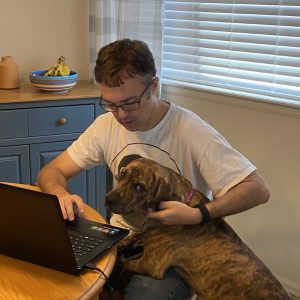
In addition to teaching his usual course load of PHIL 103, PHIL 110 online, and coaching Ethics Bowl, Eric Easley took part in the TILT First Four Weeks Summer Workshop and helped facilitate the Teaching Philosophy Reading Group for Philosophy Department faculty and graduate students. At Aims Community College, Eric led a presentation on Evicted: Poverty and Profit in the American City, and attended Aims Community College’s TAP Conference where he gave a presentation entitled “Evicted, Games, and Technology: Ethics in an Ethics Classroom.” Currently, Eric’s pursuing professional development opportunities on Program and Curriculum Assessment, while developing an online version of PHIL 100, learning how to facilitate online learning for a second-grader, and taking breaks to play with his newest family member, our dog, Greta.
Easley on Remote Teaching: “Though I regularly teach online, moving face-to-face classes to remote teaching, while providing work time and space for my wife, teaching our daughter at home, and managing the general anxiety of no one really knowing what was going on was difficult. Through interactions with my Ethics Bowl students and in hosting open office hours online, I found out both how much I miss being in front of the class and working with my students in the moment, as well as how the general craziness of this cultural moment presented powerful opportunities for students to connect with me, the material, and each other.”
Moti Gorin published a response piece on collective action problems in Southwest Philosophy Review and coauthored a paper on bioethics, social media, and health care ethics in Hastings Center Report. He also coauthored an op-ed on quarantine protesters and their duty to refuse health care resources if and when these become scarce due to the pandemic. Moti and his co-authors were interviewed by a writer for the Philadelphia Inquirer on this op-ed. Unfortunately, his session at the Pacific Division Meeting of the American Philosophical Association was cancelled.

On the teaching front, Spring 2020 was the first iteration of the new Computer Science 201/Philosophy 201 course, “Ethics and Modern Technology,” co-developed and taught by Moti and colleagues from the Department of Computer Science. This course examines topics at the intersection of computer science, the internet, social media, and ethics. Moti and Economics colleague Anders Fremstad were also awarded by CLA an interdisciplinary course that they will teach in Fall 2020: “Capitalism, Socialism, and Democracy: Economic and Philosophical Questions.”

Jeff Kasser taught a fun new graduate seminar on the ethics of belief in the fall of 2019. He continued exploring the intersection of philosophy and statistics, reading The Book of Why: The New Science of Cause and Effect and Statistical Inference as Severe Testing: How to Get Beyond the Statistics Wars as part of an interdisciplinary reading group. On a related note, he continues writing papers that try to integrate Charles Peirce’s general epistemology with his philosophy of statistical inference. He is delighted to have learned a great deal while chairing the East Asian Philosophy Search Committee, to have finally gotten back to teaching an upper-division course in philosophy of science, and to be getting the hang of being Director of Undergraduate Studies.
Kasser on Remote Teaching, and Jazz: “I have a work zone in our basement at home. The presence of my music collection helps compensate for the absence of natural light and of my fellow humans. I’m reminded these days of how much teaching is like jazz; we prepare individually in order to accomplish something spontaneous and effective when we come together. I’m still struggling to generate that kind of articulate spontaneity when teaching remotely.”
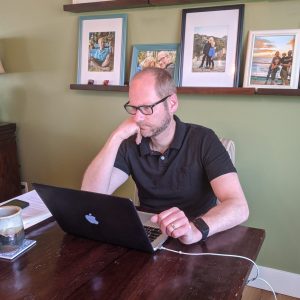
Matt MacKenzie survived his first year as department chair. He published the chapters, “Physicalism and Beyond: Flanagan, Buddhism, and Consciousness,” in Naturalism and Asian Philosophy: Owen Flanagan and Beyond (Routledge 2019) and “Volition, Action, and Skill in Indian Buddhist Philosophy” in The Routledge Handbook of Skill and Expertise (Routledge 2020). He also published “Dual-Aspect Reflexivism in Śāntarakṣita’s Philosophy of Mind” in Journal of Buddhist Philosophy (2020) and “Indian philosophy helps us see clearly, act wisely in an interconnected world” in The Conversation. He presented “Dual-Aspect Reflexivism in Buddhist Philosophy of Mind” at UC Berkeley in November 2019.
Katie McShane gave a talk entitled “The Ethics of Awe” at the Central Division Meeting of the American Philosophical Association in February, and she was the keynote speaker last summer at the International Society for Environmental Ethics, where she gave a talk entitled “Welfarism and Environmental Ethics.” Katie had an article come out in Synthese entitled “Against Etiological Accounts of Interests” and one in Ethics Forum entitled “Why Animal Welfare Is Not Biodiversity, Ecosystem Services, or Human Welfare: Toward a More Complete Assessment of Climate Impacts.” Like many, Katie had plans cancelled and deadlines pushed back this spring. She’s very much looking forward to leaving her basement office and rejoining the world soon.
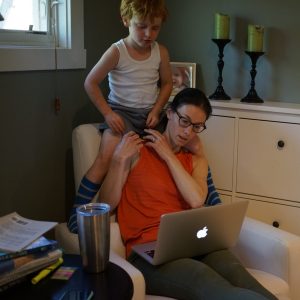
Nathalie Morasch on Remote Teaching: “I loved seeing my students continue to exchange thoughtful reflections on the Canvas discussion boards, the way they had done in class. Some of the shy personalities even came out of their shell and opened up in a way I had never seen before. Had anybody forewarned me in February: “Come March, you will be homeschooling your kids while you and your spouse are working from home” I certainly would have thought this Tiresias insane and cruel! At times I felt I was sprinting in a race with no end in sight. The emotional support I observed between classmates made the CSU motto “Rams take care of Rams” mean something and carried me through the finish line!”
Bernard Rollin continues to serve as the University Bioethicist and on CSU committees on animal care, human subjects, and biosafety. This year, he has contributed chapters to a number of volumes: “Animal Welfare” in Feeding the World Well: A Framework for Ethical Food Systems (ed. Goldberg, 2020); “Integrating Science and Well-Being” in Feline Practice: Integrating Medicine and Well-Being (ed. Scherk, 2020); “Animal Welfare Viewpoint: Why Should Industry Worry About Food Animal Quality of Life” in The Slaughter of Farm Animals (eds. Grandin and Cockram, 2020). Bernie has also been named to the editorial boards of both Animals and The Cat. And, he continues to write a monthly column, “Veterinary Medical Ethics,” for the Canadian Veterinary Journal.
Domenica Romagni gave a talk in January entitled “Descartes’ Passions: Cause, Referent, and Object” as a part of the invited symposium on Metaphysics of Mind: History Meets Contemporary at the Eastern Division Meeting of the American Philosophical Association. Also, this summer Domenica was planning to attend the International Symposium “Heavens on Trial: Arguing about the Heavens. Institution and Metaphysics of Cosmology” in the Venetian Alps, offered by the ERC Group in Early Modern Cosmology at the University of Venice Ca’Foscari. Her paper on Kepler’s epistemology was accepted for presentation, but the symposium has been postponed until next summer.

During the fall 2019 term, Kenneth Shockley taught with Semester at Sea – traveling to 11 countries on 4 continents. He was also selected to teach in the Fall 2021 Liberal Arts and Community Engagement program in Todos Santos Semester Program, and appointed a fellow in CSU’s Inaugural Program in Humanities. Shockley developed a symposium on environmental ethics in honor of CSU’s 150th anniversary, and CSU’s notable legacy in the formation and development of environmental ethics. COVID-19 concerns caused the indefinite postponement of the symposium, originally scheduled for mid-April 2020, but Shockley is optimistic it will be revived at some point in 2021. Over the academic year, he published a paper, “The Environmental Constituents of Flourishing,” developed from his Inaugural Holmes Rolston Lecture, completed a pair of book chapters on climate ethics, and coedited a special journal issue on Ethics in the Anthropocene.